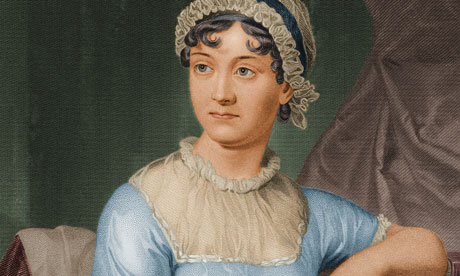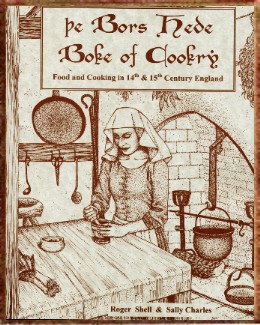Picture Day Friday

'Bridal Dress' from No 6, Volume 1, Ackermann's Repository, June 1816:
"A frock of striped French gauze over a white satin slip; the bottom of the frock is superbly trimmed with a deep flounce of Brussels lace, which is surmounted by a single tuck of byas white satin, and a wreath of roses; above the roses are two tucks of byas white satin. We refer our readers to our print for the form of the body and sleeve: it is singularly novel and tasteful, but we are forbidden either to describe it, or to mention the materials of which it is composed. The hair is dressed low at the sides, and parted so as to entirely display the forehead: it is ornamented with an elegant aigrette of pearls in front, and a sprig of French roses placed nearly at the back of the head. Necklace, earrings and breacelets of pearl. White kid gloves, and white satin slippers."
The Ackermann's Repository of Arts, Literature, Commerce, Manufactures, Fashion and Politics was published for 20 years (1809–1829) by Rudolph Ackermann. According to Hibiscus-Sinensis, Ackermann was a German carriage designer by trade when he moved to London 1783. By 1800, he was the leading publisher of the Regency era, publishing well over 300 books, plus innumerable prints and periodicals over his career. Ackermann was more than just a printer. A major patron of the Arts, he ran a drawing school, employed his own artists (Thomas Rowlandson worked constantly for him over three decades) and also manufactured art supplies such as watercolor paints. His shop was technologically advanced for 1811, for he had gas lighting installed at the premises at 101 The Strand. The quality of his prints were second to none, using the Alois Senefelder's process of lithography, which he patented in England in 1817.

 Maybe Jane Austen died of arsenic poisoning,
Maybe Jane Austen died of arsenic poisoning, 
 I loved Connie Brockway's
I loved Connie Brockway's  Along her trip down to Egypt from England, Ginesse meets one Mildred Whimpelhall, fiancée to Colonel Lord Pomfrey stationed at Fort Gordon in the Sahara desert. Mildred gets very seasick and abandons the ship part-way through the trip in preference to taking the rail down to Africa. In a moment of epiphany, Ginesse assumes Mildred's name to get herself to Fort Gordon, which is very close to where Zerzura purportedly is.
Along her trip down to Egypt from England, Ginesse meets one Mildred Whimpelhall, fiancée to Colonel Lord Pomfrey stationed at Fort Gordon in the Sahara desert. Mildred gets very seasick and abandons the ship part-way through the trip in preference to taking the rail down to Africa. In a moment of epiphany, Ginesse assumes Mildred's name to get herself to Fort Gordon, which is very close to where Zerzura purportedly is. 







 If you have a few millions euros lying around, may I suggest purchasing this beautiful Château Chanzé in the Loire Valley of France?
If you have a few millions euros lying around, may I suggest purchasing this beautiful Château Chanzé in the Loire Valley of France?  Chanzé has a pedigreed history. From the eleventh century onwards, the castle has stood on the banks of the river Layon, a tributary of the Loire. King Henry IV is reputed to have stayed a night on his journey south. In the latter half of the 19th century, efforts began to restore the castle. In 1993, the present owners, Heinrich and Maria Albertina Stoesser-Gliott of Switzerland bought the estate and completed its restoration.
Chanzé has a pedigreed history. From the eleventh century onwards, the castle has stood on the banks of the river Layon, a tributary of the Loire. King Henry IV is reputed to have stayed a night on his journey south. In the latter half of the 19th century, efforts began to restore the castle. In 1993, the present owners, Heinrich and Maria Albertina Stoesser-Gliott of Switzerland bought the estate and completed its restoration. Chanzé sits on six hectares of land and is currently operated as a bed and breakfast inn and restaurant. The property comes with four cottages that house up to 14 guests. For privacy, your personal space will be separated from the B&B by 5000 square meters of gardens.
Chanzé sits on six hectares of land and is currently operated as a bed and breakfast inn and restaurant. The property comes with four cottages that house up to 14 guests. For privacy, your personal space will be separated from the B&B by 5000 square meters of gardens.  Into this climate, the doyenne of British classic crime
Into this climate, the doyenne of British classic crime  To me, James is a mystery writer extraordinaire as compared with any other mystery writer I have ever read. And next to romance fiction, mystery is what I read the most. Also, My love of Austen is known to you all who read this blog. So a James meets Austen? I nearly fell off my chair when I heard about it.
To me, James is a mystery writer extraordinaire as compared with any other mystery writer I have ever read. And next to romance fiction, mystery is what I read the most. Also, My love of Austen is known to you all who read this blog. So a James meets Austen? I nearly fell off my chair when I heard about it.
 Much has been written about Jonathan Livingstone Seagull by Richard Bach. Some say it's a self-help book that ascribes to the positive thinking culture that's currently in vogue in the U.S. Others say it has Christian anarchist characteristics. Some consider it a deeply spiritual book, whereas Roger Ebert considers it "banal." The book has sold millions of copies and has even been made into a film with a soundtrack by Neil Diamond.
Much has been written about Jonathan Livingstone Seagull by Richard Bach. Some say it's a self-help book that ascribes to the positive thinking culture that's currently in vogue in the U.S. Others say it has Christian anarchist characteristics. Some consider it a deeply spiritual book, whereas Roger Ebert considers it "banal." The book has sold millions of copies and has even been made into a film with a soundtrack by Neil Diamond. As he pursued flying, Jon learned that failure wasn't an option he allowed himself. He remained hopeful even when he didn't achieve his goal immediately, but rather, he developed the art of patience as he practiced over and over and over again. He adhered to his rocky path towards excellence not for approval of others or adulation from others, but for himself. He was his own taskmaster, his own yardstick of excellence. He believed that "You know nothing till you prove it." And so he did: to himself and to others.
As he pursued flying, Jon learned that failure wasn't an option he allowed himself. He remained hopeful even when he didn't achieve his goal immediately, but rather, he developed the art of patience as he practiced over and over and over again. He adhered to his rocky path towards excellence not for approval of others or adulation from others, but for himself. He was his own taskmaster, his own yardstick of excellence. He believed that "You know nothing till you prove it." And so he did: to himself and to others. He believed in the innate intelligence within himself that allowed him to imagine a life beyond the usual, beyond the lives his ancestors had lived. There's freedom in innovation—innovation rather than discovery—in creating something new, in becoming more than what was before.
He believed in the innate intelligence within himself that allowed him to imagine a life beyond the usual, beyond the lives his ancestors had lived. There's freedom in innovation—innovation rather than discovery—in creating something new, in becoming more than what was before. 


 "Writing a novel is like paddling from Boston to London in a bathtub. Sometimes the damn tub sinks. It’s a wonder that most of them don’t." —Stephen King
"Writing a novel is like paddling from Boston to London in a bathtub. Sometimes the damn tub sinks. It’s a wonder that most of them don’t." —Stephen King What is even more reassuring to know is that every famous writer has those unfinished and abandoned stories dancing with dust bunnies under their beds.
What is even more reassuring to know is that every famous writer has those unfinished and abandoned stories dancing with dust bunnies under their beds. Harper Lee had written more than 100 pages of her second novel, The Long Goodbye, before To Kill a Mockingbird was even published in 1960. But the attention accompanying the wild success of Mockingbird slowed her output to a trickle until she gave up.
Harper Lee had written more than 100 pages of her second novel, The Long Goodbye, before To Kill a Mockingbird was even published in 1960. But the attention accompanying the wild success of Mockingbird slowed her output to a trickle until she gave up.
 Last year, I blogged
Last year, I blogged 
 Haute Couturier Coco Chanel was once asked, "Where should one wear perfume?"
Haute Couturier Coco Chanel was once asked, "Where should one wear perfume?" 
 In my choices, I find that I am selective and inconstant. My likes don't fall in any family of fragrances (floral or woodsy, etc.), but more individual fragrance by individual fragrance. So instead of buying a whole expensive bottle that I'll end up tossing away, I buy 1 ml samples from
In my choices, I find that I am selective and inconstant. My likes don't fall in any family of fragrances (floral or woodsy, etc.), but more individual fragrance by individual fragrance. So instead of buying a whole expensive bottle that I'll end up tossing away, I buy 1 ml samples from  These are my favorites that I have never grown tired of: Plumeria Vanilla by Island Bath & Body, Tropical Colada by Bath & Body Works Temptations, Basic Instinct by Victoria's Secret, Chanel No. 5, For Her by Narciso Rodriguez, and Neroli by Laura Mercier. I also like the smell of
These are my favorites that I have never grown tired of: Plumeria Vanilla by Island Bath & Body, Tropical Colada by Bath & Body Works Temptations, Basic Instinct by Victoria's Secret, Chanel No. 5, For Her by Narciso Rodriguez, and Neroli by Laura Mercier. I also like the smell of  He named his fragrance Eau de Cologne, (or ‘Kolnisch Wasser’ in German) in honour of the town where he was living."
He named his fragrance Eau de Cologne, (or ‘Kolnisch Wasser’ in German) in honour of the town where he was living." 



 Do spoilers spoil your reading experience or do they enhance it?
Do spoilers spoil your reading experience or do they enhance it? For authors who're new to me and have been recommended by close friends and/or whose taste in the past I have found works for me, I discuss the book before I read it. I even ask about plot points and spoilers (except for mystery books). I will go look on Amazon for reader reviews. So when I tackle the book, it is with full knowledge of the story and how it unfolds. I want to see if the author can still sell it for me. If so, then the author is a good one for me to hang on to (backlist and future titles).
For authors who're new to me and have been recommended by close friends and/or whose taste in the past I have found works for me, I discuss the book before I read it. I even ask about plot points and spoilers (except for mystery books). I will go look on Amazon for reader reviews. So when I tackle the book, it is with full knowledge of the story and how it unfolds. I want to see if the author can still sell it for me. If so, then the author is a good one for me to hang on to (backlist and future titles).  Recently, Huffington Post wrote about a study by the University of California, San Diego, about
Recently, Huffington Post wrote about a study by the University of California, San Diego, about  To those of you not reading the
To those of you not reading the 



